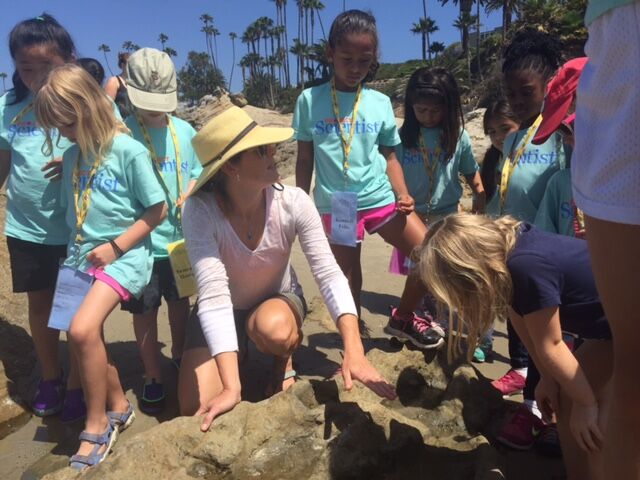Beaches and the nearshore region are the primary interfaces between humans and the ocean. Many people from all walks of life have experienced this part of the ocean and this makes coastal oceanography a good entry into STEM fields for a wide range of ages and educational backgrounds. As a mother of two young girls, supporting gender equality in STEM fields is of central importance to me. In my time at UC Irvine, I have worked with two local organizations as a role model and mentor for primary and secondary grade girls. The first, Project Scientist, runs “The Academy” which is a summer camp for girls (ages 4-12) that engages them in experiential learning on a university campus and interaction with female STEM professionals as mentors called “STEM Superstars”. I have served as a STEM Superstar for three summers – talking about my path to becoming an oceanographer, leading the kids on virtual SCUBA dives, and a tide pool field trip with my daughters in tow.


Whale watching with my daughters and the Girl Scouts in southern California.
I have also been a mentor for girls at the middle and high school level at the Ocean Institute in Dana Point, CA. Every spring, they host the Ocean Science Teen Conference, which brings together enthusiastic middle and high school girls with female scientists for a two-day workshop aboard a research vessel and in teaching labs to explore careers in areas such as oceanography and marine ecology.

As faculty in engineering and the physical sciences I understand the challenges that many graduate students and early career researchers are facing as they navigate the academic world and go in search of jobs. In order to reduce the barriers to career development for junior scientists in my field, especially junior women, I have been serving as a mentor to a group of 5 women scientists from late graduate school through early career through the MPOWIR (Mentoring Physical Oceanography Women to Increase Retention) Program since January 2018. I lead monthly calls with my group and talk about topics which include: work-life balance, how to say “No”, how to decide which and how many outreach activities to get involved in, job negotiations, difficulties with co-authors on a manuscript, and how to write a proposal.
